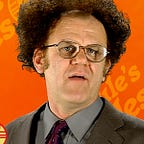Why I Want to Recap The Americans, A Few Days Later
One of Bernie Sanders’ main applause lines in his campaign speeches is about “family values”. The line counters mid-2000’s anti-gay and anti-abortion legislation, harkening back to 2004 when marriage was a wedge issue. It speaks to a battle over who gets to decide what an American family looks like and with its incorporation of “values”, makes a judgement call about the strength of the family unit. It’s been a battle line for hundreds of years — in The Communist Manifesto, Marx called for the dissolution of the family as we know it. In election after election, the state of the family is called into crisis and politicians demand restitution. Why? What has intrigued the public about the state of adults and children living together in the same house, an act which in our lives we generally consider quite dull? The Americans gets at the answer to this question: there’s nothing more dangerous than these bonds, be they full or broken.
Many shows are obsessed with family, of course: Game of Thrones sees the structure as a means to power, Rick and Morty sees it as a diametric contradiction forcing stability and chaos into your life. Breaking Bad saw it as the greatest enemy in a person’s life, because its filled with the only people who know your weaknesses. But The Americans finds it to be a natural fit. So natural that nobody would find it odd. It’s been tested and perfected in Soviet labs, and after rigorous trials out popped Elizabeth and Phillip Jennings, played remarkably by Keri Russell and Matthew Rhys. They’re normal. They’re not more-normal-than-normal, Edward Scissorhands neighbors or John Waters characters. They just live their lives as travel agents and take their kids to school and kill people on behalf of the Soviet Union.
In the first episode of The Americans, Elizabeth and Phillip decide to break the rules of their long-standing arrangement and tell each other their true backgrounds, their stories of lives in the Soviet Union. They’re convinced that if they do this, reveal their truths to each other, it will not only strengthen their chances of success in their mission — loosely, to destroy America — it will give them a chance to truly fall in love with each other. The two can strengthen each other, the family dynamic can expand and mutate into any possible scenario. This plot is mirrored in the finale of the third, most recent season, but with disastrous results. Phillip and Elizabeth, tasked with bringing their daughter Paige into their program, try to reconnect her with the family’s true roots. Elizabeth and Paige visit West Germany, where Elizabeth’s ailing mother is smuggled across Soviet lines for the first, and last, family reunion since the program began. The three hold hands and transcend generations. Here is your birthright, Elizabeth tries to tell Paige. Here is what your family has to offer you.
It is an offer that, as far as the third season’s finale is concerned, Paige rejects. Love cannot be suddenly thrust upon a person, histories cannot be valued in an instant. Paige, whose religious tendencies have become controversial in the Jennings household, tells her preacher that her parents are not who they say they are. No moment of television in 2015 has matched the shock of Paige’s phone call, the massive miscalculation made by Phillip and Elizabeth coming into full scope.
Similarly, no show on television uses music as effectively, although The People vs. O.J is a close second. It’d be easy to play the 80’s soundtrack for jokes and camp, but The Americans finds great drama in using the music of that decade and the one Phillip and Elizabeth most likely listen to, the ten years prior in the 70’s. There’s Roberta Flack, Roxy Music, Fleetwood Mac. The camerawork is tense, the fight scenes have real stakes, the scripts progress the plots without words. But ultimately, in the Jennings family a viewer finds life and death. People relate to The Americans is because it shows a family dynamic worth living and dying over.
The Americans has the benefit of the past, the peace of mind that comes with predetermination. Assuming The Americans, a show created by a former C.I.A officer who has brought Oliver North in for advice, doesn’t want to stray radically from history and allow for a Soviet victory (a subject best suited for my fan-fiction), one has to assume that the show’s greater world will move in a predictable fashion. The show functions as a piece of political art because it funnels decision seemingly out of reach, seemingly unknowable, to the boring thing we know the most, our family. Even if Obergefell v. Hodges is the law of the land, the family still provides the necessary metaphors for politics, for philosophy, for any means through which you’d want to live your life. It builds up within us, it compartmentalizes, and it explodes into whatever means are necessary for survival.
I enjoy writing and thinking about The Americans for these reasons. I don’t have live TV, so I’m going to watch each episode on Amazon the day after (hopefully) and spend a little time thinking about each episode. I hope it goes okay!
